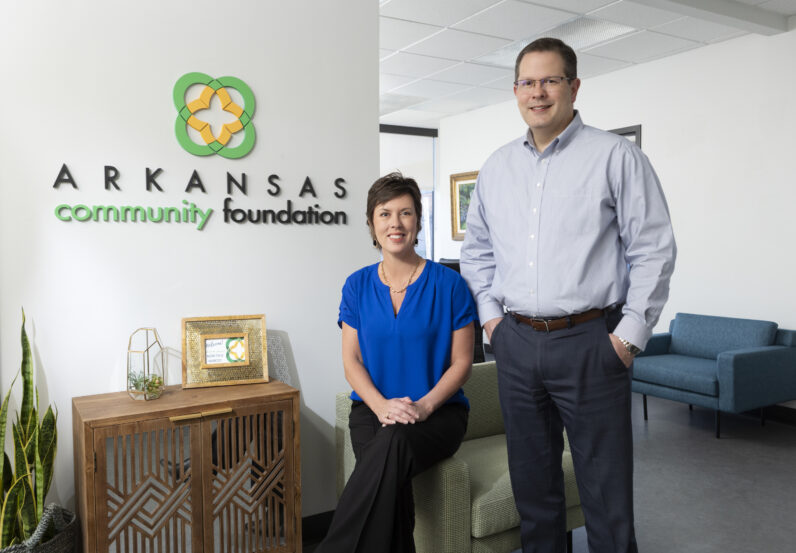Sustaining Arkansas: A Legacy of Community Impact Through Foundations

In 1976, Gov. Winthrop Rockefeller laid the groundwork for Arkansas Community Foundation (ARCF) with a modest grant, envisioning a statewide resource similar to community foundations he encountered in New York. Today, ARCF serves all 75 Arkansas counties through 29 affiliate offices, epitomizing a commitment to community well-being.
In the early 2000s, The Bank of Fayetteville employees John Lewis and Hugh Kincaid, collaborating with the ARCF in Little Rock, created the Fayetteville Community Foundation. Originally a standalone entity, the Foundation became an ARCF affiliate in 2008. Its three pivotal endowments – Fayetteville Restoration, Alvin J. and Adah A. Sprague and Happy Hollow – became pillars of support for the Fayetteville community.
ARCF CFO Corey Moline said the Foundation shares a prudent investment strategy with The Bank of Fayetteville. “We’re not out there trying to outperform everybody because that wouldn’t be the safest approach,” he said. The endowments, not only due to their size but also to strategic investments, provide a secure foundation for annual grant-making while ensuring asset growth.
Over 15 years, Fayetteville Community Foundation has allocated more than $1 million for diverse local needs – from education to organizations like the Boys and Girls Club, Welcome Health, Peace at Home, Mount Sequoia and CASA of Northwest Arkansas. The Foundation’s committees and community advisors ensure the funds align with the original donors’ intentions, fostering a targeted impact.
Moline said the endowment funds have inspired others. “Not only did the funds do good work, they were also a bit of an image in the community to give others incentive or confidence that they could also do something similar,” he said.
Jody Dilday, Vice President, Northwest Operations for ARCF, said the endowment funds are allocated by a team of community advisors charged with making annual distributions. “They look at community needs and the organizations equipped to address those needs in making the decisions as to where the grant monies will be awarded each year,” she said.
The enduring power of endowments lies in their ability to grant more than the initial funds while preserving the principal, maintaining a perpetual impact on the community. As Dilday pointed out, “Endowments are so attractive because we know that community needs do not end.”
The partnership with The Bank of Fayetteville remains integral to ARCF’s success. Moline said the bank is a reliable partner, providing sound guidance and remaining steady during market fluctuations. This enduring collaboration exemplifies the shared commitment to community empowerment.
“In all of my interactions with the bank, I can tell it’s all about community and giving back,” Dilday said.
Moving forward, ARCF aims for a 4% annual grantable rate, relying on The Bank of Fayetteville’s expertise in navigating financial markets. The collective goal is to maintain the purchasing power of the original endowment, ensuring a sustained impact on the Northwest Arkansas community.
The histories of ARCF and Fayetteville Community Foundation showcase a legacy of visionary philanthropy. From Rockefeller’s initial grant to the strategic partnerships with The Bank of Fayetteville, these foundations stand as pillars of community empowerment, shaping a resilient and thriving Arkansas.
 FDIC-Insured - Backed by the full faith and credit of the U.S. Government
FDIC-Insured - Backed by the full faith and credit of the U.S. Government
